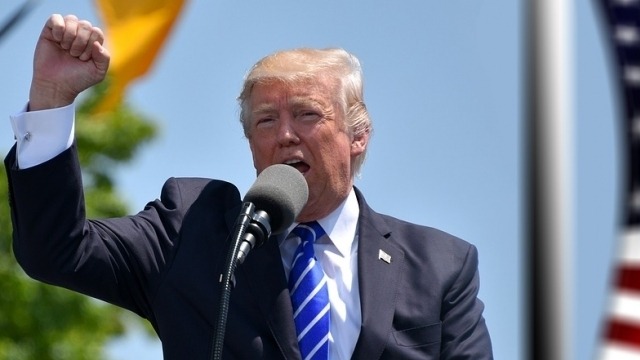Analysis: American anger comes for women, migrants, journalists

By Mark Kenny
A version of this article was originally published by The Canberra Times.
The central question heading into the vote count in the most pivotal election since the Second World War, was would women save America from its own democratic debasement?
It shouldn't even have been close after the convicted Donald Trump's vulgar norm-trashing and hateful rhetoric. But "should" has nothing to do with it.
In this super-personal contest, the candidates could not have more fully embodied the respective motivations of their parties.
He, a privileged white alpha-male "billionaire" who sold the lie of representing the poor like it was a Florida time-share. She, Kamala Harris, a woman of colour with the temerity to go where no woman has gone before - the Oval Office.
After the pandemic and the inflationary overhang inherited by Joe Biden, this was the vengeance poll. And the target of that vengeance? Elites. Legacy media. Progressive culture warriors. Judges. Women.
It was the election in which female bodily autonomy came smack against a brittle and panicked masculinity.
And there was the 2020s curse - incumbency. Americans are angry at the government over their lived experience of the economy - high prices, job insecurity, zero-wage growth - and uncontrolled immigration.
But the common themes here are anger and grievance. Even young males who traditionally lean progressive were stirred into action to oppose "wokeness", and to see the gender equity project as the emaciation of maleness. It was a weakness of mind that Trump and his frat-boy Tech-bro enablers ruthlessly hammered.
Nobody can doubt the front of the man, his particular attraction, nor his indefatigability.
Indignant Americans had faced a choice between an uncertain future and a romanticised past. Between hope and nostalgia.
MAGA invoked a time when America was great but a date was never specified. Perhaps it was during slavery, or segregation, or before women could vote, or obtain abortions?
Voters decided that a former president who abused his power and ignored their sovereign verdict in 2020, could simply be re-installed, no apology necessary for breaking democracy's golden covenant of mutual respect between voter and candidate.
Fox News fell over itself with glee, its Botoxed hosts outdoing each other with praise for "the greatest political comeback of all time". He had been dead politically on "January 7", they gushed, but had risen again "in spite of all they had thrown at him". "They" being legacy media, which they decreed as "dead" from this day forward.
Perhaps this was right. Perhaps the high dudgeon of people defending the status quo had only "phoenixed" Trump ever higher in this war on the establishment?
In 1964, the American historian Richard Hofstadter published a piece in Harper's Magazine titled "The Paranoid Style in American Politics" in which he diagnosed an underlying cultural predilection for seething discontent, profound suspicion of government, and a penchant for conspiracy theories.
Aspiring populists try to connect with their electorate's darkest instincts. Trump didn't even have to think about it.
Now we're all thinking about it. Again.
Mark Kenny is the Director of the ANU Australian Studies Institute and host of the Democracy Sausage podcast.








